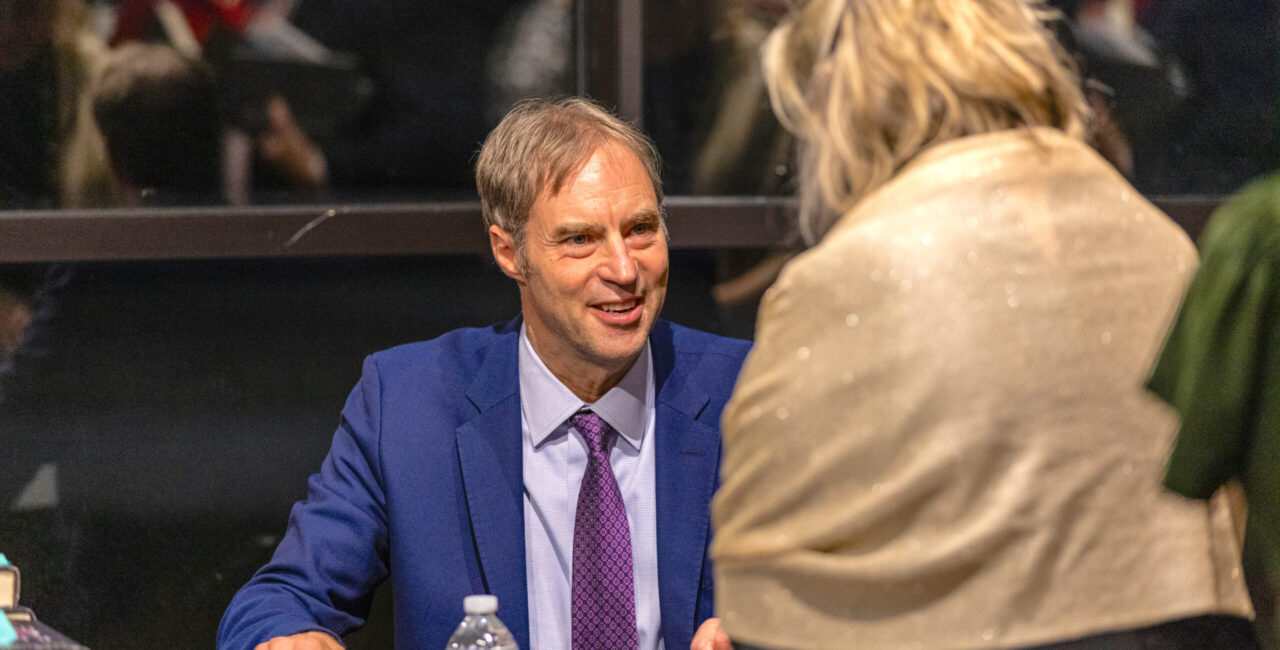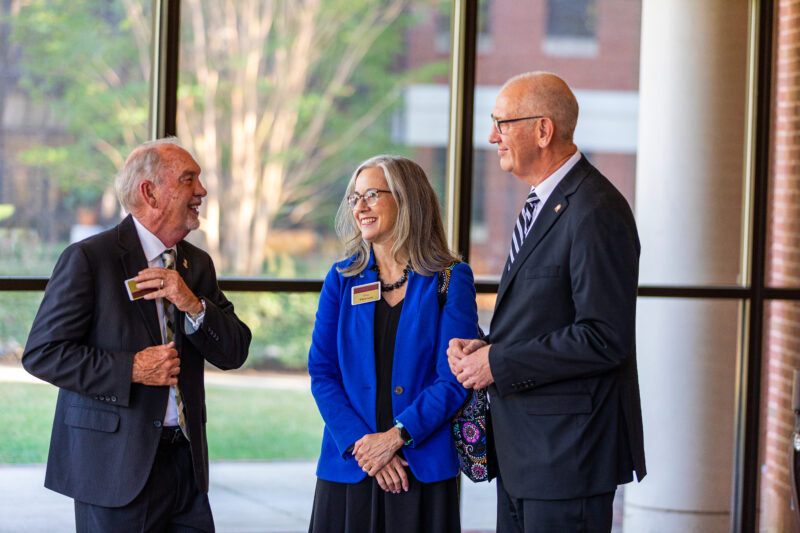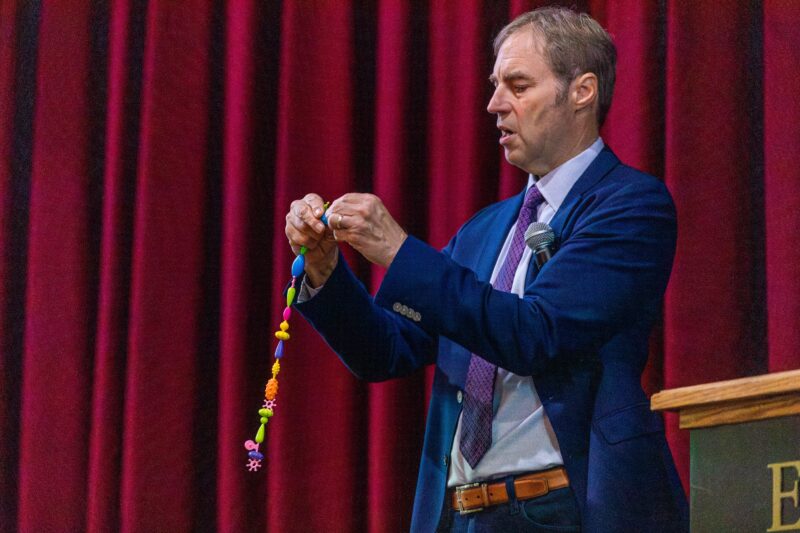
‘The facts support the faith’: Dr. Stephen Meyer speaks at Garnet & Gold Forum
 Dr. Stephen C. Meyer, director of the Discovery Institute’s Center for Science and Culture in Seattle, Washington, delivered the keynote address at Erskine’s Second Annual Garnet & Gold Forum Friday, Sept. 29 in the recently renovated Bowie Arts Center on the Erskine College campus.
Dr. Stephen C. Meyer, director of the Discovery Institute’s Center for Science and Culture in Seattle, Washington, delivered the keynote address at Erskine’s Second Annual Garnet & Gold Forum Friday, Sept. 29 in the recently renovated Bowie Arts Center on the Erskine College campus.

“The fundamental question that runs underneath many of the issues dividing our culture is actually the God question—is God real or imaginary?” Meyer told his audience.
Citing “an almost epidemic loss of belief in God,” a drop of about 10 percent over 10 years according to a recent Gallup poll, Meyer noted that the downward trend is especially strong among young people.

Seeking the root causes of this shift, Meyer’s organization commissioned a public opinion survey which found that 65 percent of self-described atheists and 43 percent of agnostics cite the perceived message of science. “They say they believe that the findings of science make the existence of God less probable,” Meyer said.
Meyer traces this belief about science to the materialistic worldview prevalent among scientists and members of the “knowledge culture”—a worldview in which no creator is responsible for the existence of the universe.
Richard Dawkins, one famous proponent of this view said, “The universe we observe has precisely the properties we should expect if there is at bottom no design, no purpose, nothing but blind pitiless indifference.”
Meyer pointed out that, according to Dawkins himself, our knowledge of the world is testable by observation, which makes Dawkins’ claims—and the claims of materialism—open to scientific investigation and refutation.
Citing three key scientific discoveries which undermine atheistic materialism, Meyer spoke about scientists whose views were challenged by such discoveries.
First, the universe had a beginning. In the first half of the 20th century, the use of more powerful telescopes offered evidence not only that galaxies beyond our Milky Way exist, but that those galaxies are moving away from us in real time, their light “stretched,” suggesting an expanding universe. This, in turn, suggests that the universe had a beginning from which it expanded.
Second, evidence shows that the universe is “fine-tuned” for life—some have called it a “Goldilocks universe.” Many natural phenomena—the strength of gravity and electromagnetism as well as the speed of light, for instance—must fall within tight parameters for life to exist.
Third, Meyer pointed to discoveries about DNA, digital code that directs the composition of cells. He compared this code to that developed by programmers at an airplane factory, information which directs the building of the airplanes.
“Information in our experience always arises from an intelligent source,” Meyer said. “So the discovery of information at the foundation of life…suggests—implies—the activity of a designing mind.”
Meyer named a number of scientists who changed their minds as a direct result of these and other scientific discoveries. Albert Einstein came to accept the theory of the expanding universe, which he had rejected earlier in his career because of the theory’s theistic implications. Atheist astronomer Allan Sandage became a Christian, inspired by—not in spite of—science. Sir Fred Hoyle, also an astronomer, was staunchly anti-religious but eventually conceded that a “super-intellect” must have been involved in the origin of the universe.
“The facts support the faith,” Meyer said. “They don’t contradict the faith.”
Meyer took several questions from the audience, and Erskine President Dr. Steve Adamson spoke briefly at the conclusion of the event.
“Erskine College started this forum to accomplish what you heard tonight—providing thought-provoking conversations on every aspect of Christianity,” Adamson said. He noted that the forum also fits into Erskine’s vision “to equip students for lives of service and leadership, building Christ’s Church and influencing society for God’s glory.”
Meyer spent two days leading up to the Garnet & Gold Forum on the Erskine campus. During that time, he spoke at a planned Fleet Fellowship gathering. Response from students was so positive that he decided to add another event to his Erskine schedule—a “Town Hall” event in which he fielded questions from members of the campus community.
A former geophysicist and college professor, Meyer is the author of the New York Times bestseller Darwin’s Doubt: The Explosive Origin of Animal Life and the Case for Intelligent Design (2013) as well as Signature of the Cell: DNA and the Evidence for Intelligent Design (2009), named one of the top books of the year by the Times Literary Supplement. His latest work is The Return of the God Hypothesis (2021).
Meyer, who earned a Ph.D. in the philosophy of science at the University of Cambridge, has contributed to academic publications, published editorials in prominent newspapers, appeared on national television and radio programs, and been featured in two New York Times front-page stories.
